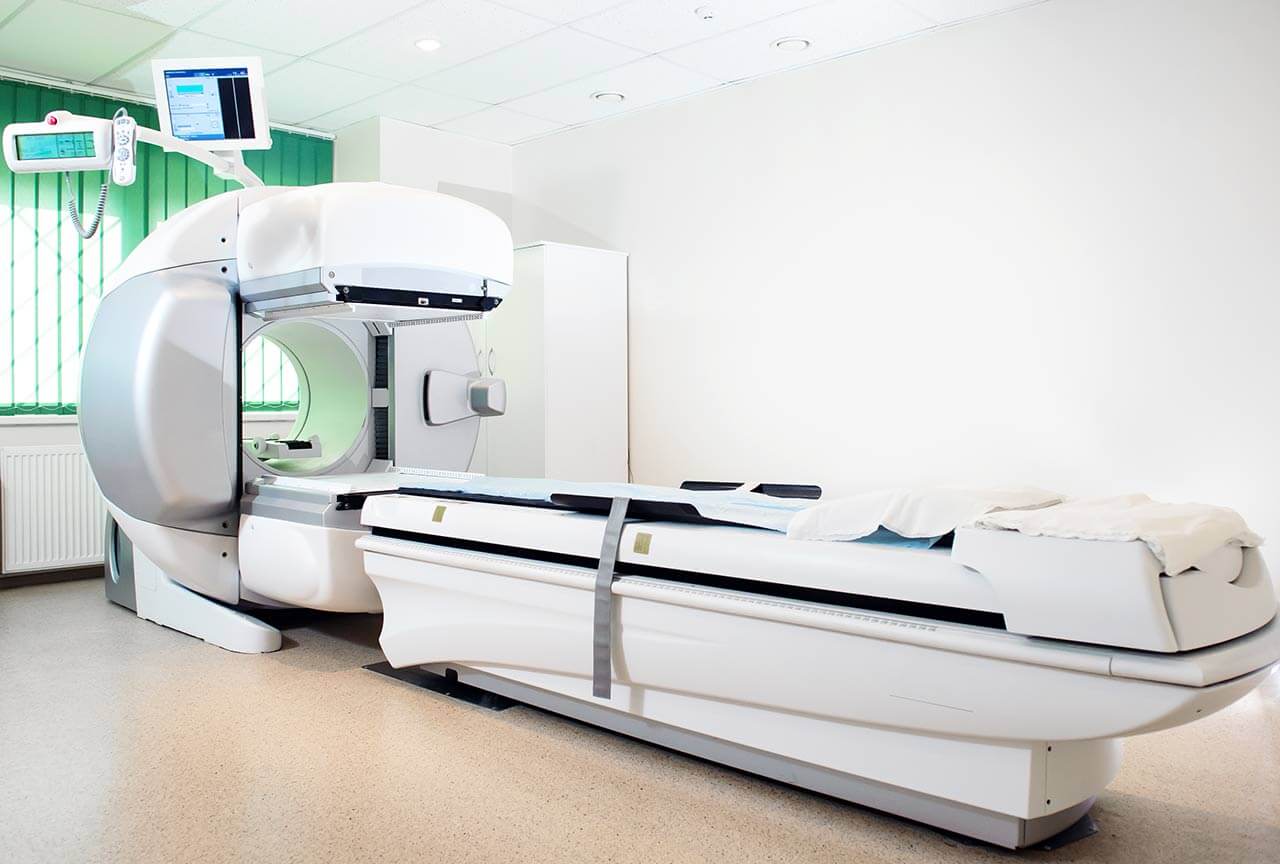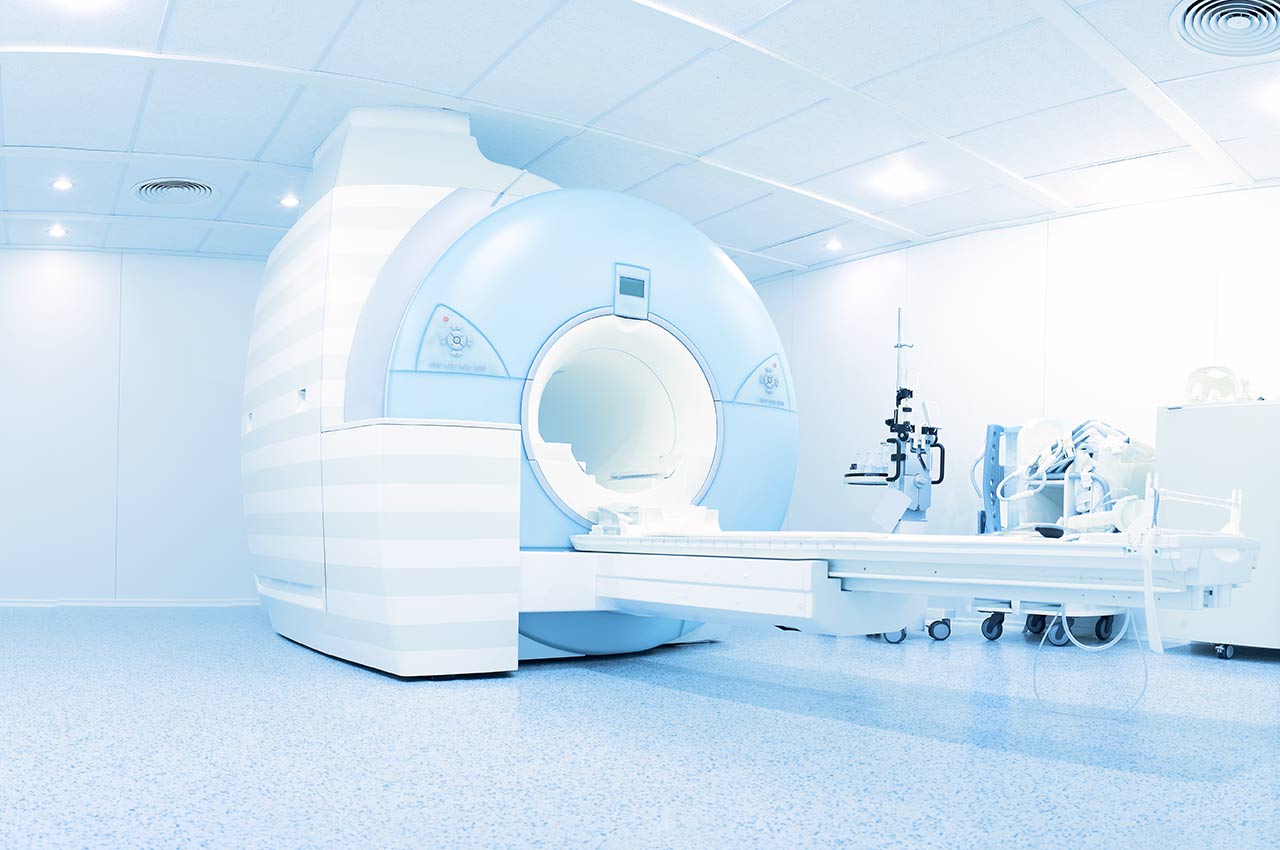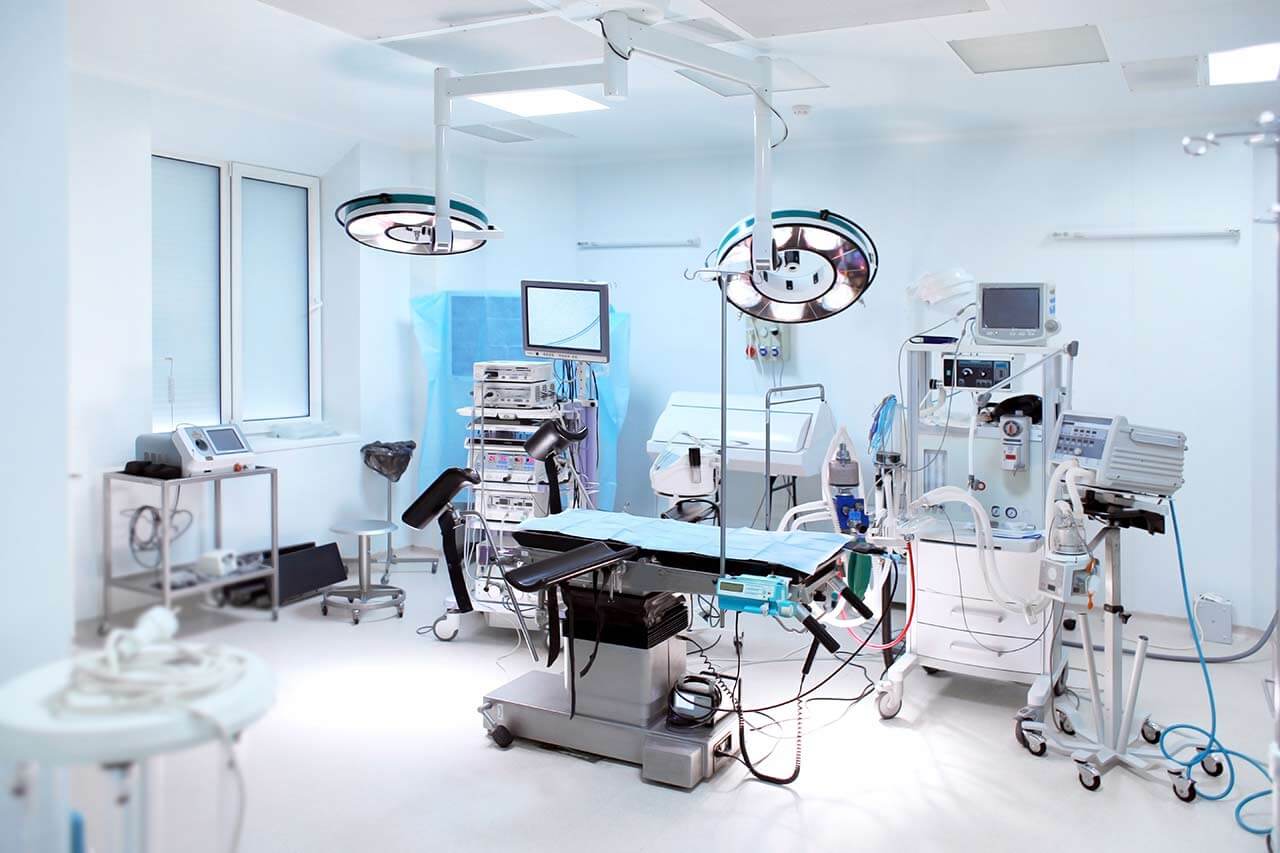
The program includes:
- Initial presentation in the clinic
- clinical history taking
- analysis of medical records
- physical examination
- laboratory tests:
- complete blood count
- biochemical analysis of blood
- TSH-basal
- tumor markers
- inflammation indicators
- indicators of blood coagulation
- ultrasound scan of the abdomen
- CT/MRI scan of the abdomen
- colonoscopy with biopsy (if indicated)
- histological and immunohistochemiсal analysis
- 1 course of chemotherapy
- consultation of related specialists
- symptomatic treatment
- cost of essential medicines and materials
- nursing services
- control examinations
- full hospital accommodation
- developing of further guidance
How program is carried out
During the first visit, the doctor will conduct a clinical examination and go through the results of previous laboratory tests and instrumental examinations. After that, you will undergo an additional examination, including laboratory assessment of liver and kidney function, ultrasound scan. Based on the received results, the doctor will elaborate the chemotherapy regimen. If necessary, related medical specialists will be involved in the elaboration of a treatment regimen (tumor board).
Chemotherapy is carried out as the day hospital procedure, without mandatory admission to the hospital. After the placement of a venous catheter, you will stay in a comfortable ward. An infusion system will be connected to the catheter, through which the required drug or a drug combination will be administered. All drugs are administered by intravenous drip, slowly, so the total duration of the infusion can be up to several hours. All this time, doctors and nurses will monitor your health condition closely.
After the course of chemotherapy, you will stay under medical supervision in the ward for a few more hours. If your general condition is good, your doctor will allow you to leave the hospital. You will receive the medical report with detailed recommendations regarding further treatment. In the future, you will be able to have a distant consultation with your attending physician and schedule the next course of chemotherapy, if necessary.
Required documents
- Medical records
- MRI/CT scan (not older than 3 months)
- Biopsy results (if available)
Service
You may also book:
 BookingHealth Price from:
BookingHealth Price from:
About the department
The Department of Oncology at the Hirslanden Clinic Bois-Cerf Lausanne specializes in the prevention, comprehensive diagnostics and effective treatment of malignant solid tumors, as well as malignant diseases of the hematopoietic system. The Chief Physician of the department is Dr. med. Caroline Zwicky.
The diagnostic services include laboratory tests, imaging tests, and various types of biopsies. The examinations allow the doctors to establish an accurate diagnosis and develop the optimal treatment regimen taking into account the individual needs and wishes of the patient. The patients with incurable cancers receive high-quality palliative care, which is aimed at improving the quality of life and pain relief.
The department's doctors are convinced that the successful treatment of cancer requires a multidisciplinary approach, and therefore not only oncologists and hematologists, but also doctors with a narrow specialization (for example, gastroenterologists, urologists, endocrinologists), as well as chemotherapists, radiation therapists, surgeons, etc., are involved in the therapeutic process.
The treatment regimen for each patient is developed individually, during an interdisciplinary tumor board. In most cases, the basis of therapy is surgical resection of the tumor, which is complemented by chemotherapy, radiation therapy, hormone therapy and immunotherapy. Chemotherapy is carried out using the highly effective drugs of the latest generation, which can destroy tumour cells. Radiation therapy is carried out in the Department of Radiation Oncology, which operates as part of the clinic. Irradiation is carried out on the latest generation Varian Truebeam® linear accelerator. If possible, surgical interventions are performed using organ-preserving and minimally invasive techniques. This approach allows the doctors to achieve total removal of tissues affected by oncology and at the same time maintain a high quality of life for the patient. The department's surgeons also often resort to endoscopic surgery and robotic interventions, which have many advantages as compared to conventional surgery, but at the same time they are not inferior to it in effectiveness.
The department specializes in the treatment of the following malignant diseases:
- Breast cancer
- Prostate cancer
- Cancer of the female reproductive organs (uterus, cervix, ovaries)
- Cancer of the gastrointestinal tract (stomach, bowel, liver, pancreas, etc.)
- Cancer of the thoracic organs (lungs, bronchi, pleura, etc.)
- Cancer of the nervous system (brain)
- Head and neck tumors
- Endocrine cancer (thyroid gland, parathyroid glands, adrenal glands)
- Bone and soft tissue tumors
- Leukemias
- Myelomas
- Lymphomas
- Myelodysplastic syndrome
- Myeloproliferative syndrome
- Other pathologies
The therapeutic options of the department include:
- Surgical removal of tumors of various locations, including removal of metastases
- Chemotherapy
- Radiation therapy
- Hormone therapy
- Immunotherapy
- Other treatment methods
Curriculum vitae
Clinical Interests
- General hematology.
- Leukemia treatment.
- Lymphoma treatment.
- Myeloma treatment.
- Myeloproliferative and myelodysplastic syndrome treatment.
Education and Professional Career
- 1989 Doctoral Degree in Medicine, Faculty of Medicine, University of Lausanne.
- Clinical training at the University Hospital Zurich, the University Hospital Bern and the University Hospital Lausanne.
- Postgraduate training at the Dana-Farber Cancer Institute, Harvard Medical School in Boston, USA.
Memberships in Professional Societies
- Swiss Medical Association (FMH).
- Swiss Society of Hematology.
- Swiss Society of Medical Oncology.
- European Hematology Association.
Photo of the doctor: (c) Hirslanden AG
About hospital
The Hirslanden Clinic Bois-Cerf Lausanne is a modern medical facility, which has gained an excellent reputation in Switzerland due to the high-level medical service, advanced infrastructure and a humane attitude towards patients. The medical center is part of the Hirslanden Private Hospital Group, which has high patient satisfaction ratings and provides medical care in accordance with international medical standards.
The priority focuses of the clinical activities of the medical facility in Lausanne include orthopedics, oncology and ophthalmology. The clinic consists of 14 specialized departments and medical centers, which doctors annually admit more than 3,700 patients. The clinic has 68 beds for inpatient treatment. With appropriate clinical indications, the diagnostics and treatment can be carried out on an outpatient basis.
The clinic has a unified quality management system, which is implemented in all medical centers of the Hirslanden Group. The clinic also provides open annual reports on all important clinical criteria, so the patients can freely get all the information they need. In 2007, the Swiss Medical Association awarded the clinic with ISO 9001: 2000 quality certificate.
The clinic is located in a picturesque place, surrounded by Lake Geneva and the Alps, which has a positive effect on the recovery of patients and helps to maintain an excellent mood during the treatment.
Photo: (с) depositphotos
Accommodation in hospital
Patients rooms
The patients of the Hirslanden Clinic Bois-Cerf Lausanne live in comfortable and cozy rooms. Each patient room has an ensuite bathroom with a shower and a toilet. The standard room includes an automatically adjustable bed, a bedside table, a wardrobe, a table and chairs, a TV. Wi-Fi is also available in the patient rooms. If desired, the patient can live in an enhanced-comfort room with a safe, a fridge and upholstered furniture.
Meals and Menus
The patient and the accompanying person are offered a daily choice of three menus. If you are on a specific diet for any reason, you will be offered an individual menu. Please inform the medical staff about your dietary preferences prior to the treatment.
Further details
Standard rooms include:
Religion
The religious services can be provided upon request.
Accompanying person
During the inpatient program, an accompanying person may stay with the patient in the patient room or at a hotel. Our managers will help you choose the most suitable option.
Hotel
During the outpatient program, you can live in a hotel of your choice. Managers will help you choose the most suitable options.





